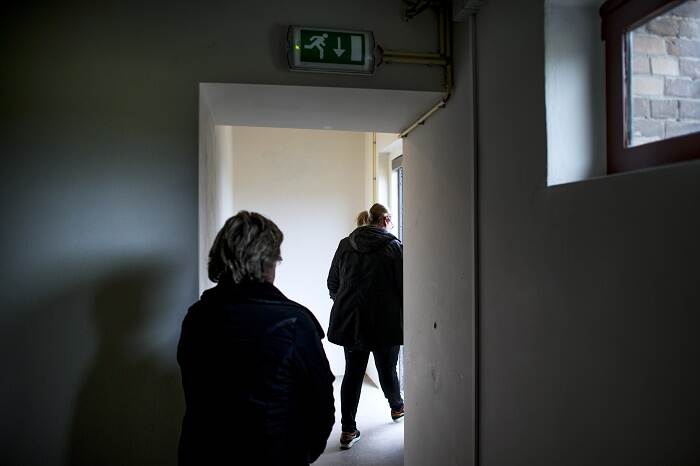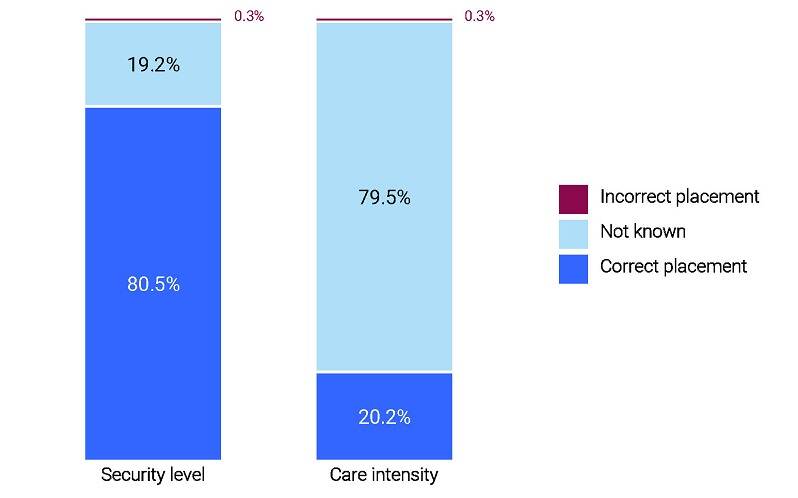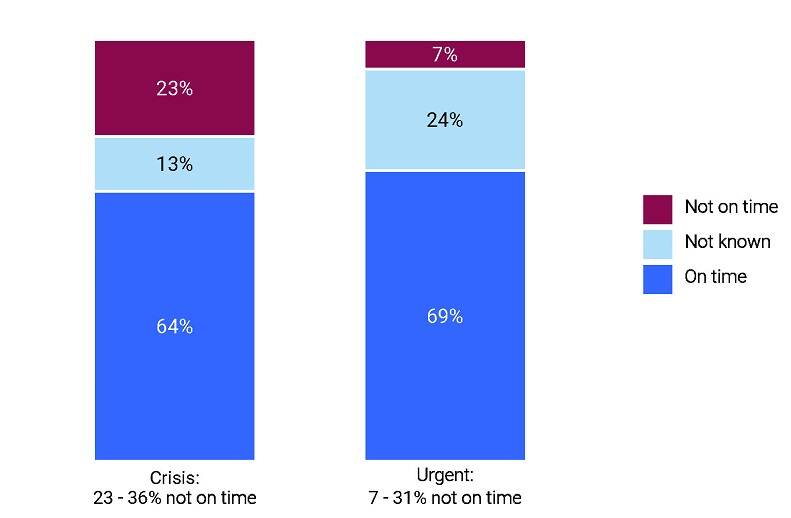Quality of forensic care provided to convicts
It is uncertain whether the forensic care provided to convicts helps their recovery and stops them reoffending. The information available to the Minister for Legal Protection is inadequate to say one way or the other. It therefore cannot be said whether the treatment of convicts actually makes society safer.

Fragmented and missing information
The Ministry of Justice and Security has difficulty following people who receive forensic care because the relevant information is fragmented over several systems. It is difficult to say from the available information whether convicts receive care at the right time and the right place. Furthermore, data are not kept on, for instance, progress to regular mental health care. The Minister for Legal Protection therefore does not know whether he is achieving the goals laid down in the Forensic Care Act: the medical recovery of convicts and a reduction in reoffending.
What is forensic care?People who commit a criminal offence can have an addictive disorder, a psychological disorder or an intellectual disability. For society’s sake, it is therefore important that they receive appropriate treatment so that they do not reoffend. Such treatment is known as forensic care. This form of care is usually provided under a court order. It can involve placement in a secure psychiatric institution or addiction clinic but also of outpatient care. The goal is to help patients recover and stop them reoffending. About 20,000 people in the Netherlands receive forensic care every year (three-quarters as outpatients) at a cost of €971 million to the government in 2020. The Minister for Legal Protection is responsible for implementation and evaluation of the Forensic Care Act. |
Measurements do does not improve insight
The ministry measures many aspects of forensic care but the measurements do not improve its insight. The ministry does not measure, for instance, whether the care improves a convict’s mental health or reduces the risk of reoffending. Records are kept only of how often a care provider measures risk. The Research and Documentation Centre studies how often convicts reoffend but the studies do not show the influence of forensic care.
Combining and making better use of information creates new insights
The minister and parliament could gain more insight into the quality of forensic care if they combined and made better use of the data kept in the various, anonymised systems. The Court of Audit combined data and made some interesting findings. To give one example, an analysis of people placed in a forensic care institution found that it was not known if 19% of them were placed in an institution with the appropriate security. And it was uncertainty whether 80% received the right care intensity in the care institution in which they were placed.
Uncertainty about the right placement greater concerning care intensity than security level

Another example relates to crisis placements for clinical forensic care. We found that 23% of such care was not provided on time (within two days) and it was not known whether care was provided at all in 13% of the cases. This creates risks to society and the convicts themselves.
Urgent and crisis placements not always up to standard

Better steering and better information
The Forensic Care Act was introduced in 2018 primarily to ensure that forensic care was timely, appropriate and of high quality in the interests of the patients and society. The Court of Audit concludes that the Minister for Legal Protection currently does not have the information he needs to know whether he is achieving the goals or needs to adapt policy. The Court recommends that the quality of data should be improved. The minister would then be in a better position to implement the act and inform parliament of the results of the forensic care provided.